Your Shopify store shows $35,000 in sales. Your Google Ads reports $50,000 in revenue.
Which number should you trust?
Missing 30% of your conversion data means wasting 30% of your ad budget.
These tracking gaps are silently killing your ad performance:
- Your “best performing” campaigns might be losing money
- Customer purchases vanish when they switch devices
- iOS updates and ad blockers break your conversion tracking
The worst part? The standard Ecommerce ad tracking setup fails exactly when it matters most – during checkout. By the time most merchants discover these issues, they’ve already wasted thousands on campaigns based on incorrect data.
→ That’s why we built Analyzify – to give Shopify merchants reliable Google Ads tracking through enhanced conversions and accurate data transmission. But first, let’s see the specific tracking problems that might be draining your ad budget right now.
How to Fix Common Shopify Ecommerce Ad Tracking Issues
Notice different revenue numbers between Google Analytics and your Shopify dashboard? It’s a common tracking issue many store owners face. Let’s break down the most critical problems that are likely costing you money right now:
Revenue Mismatches Between Platforms
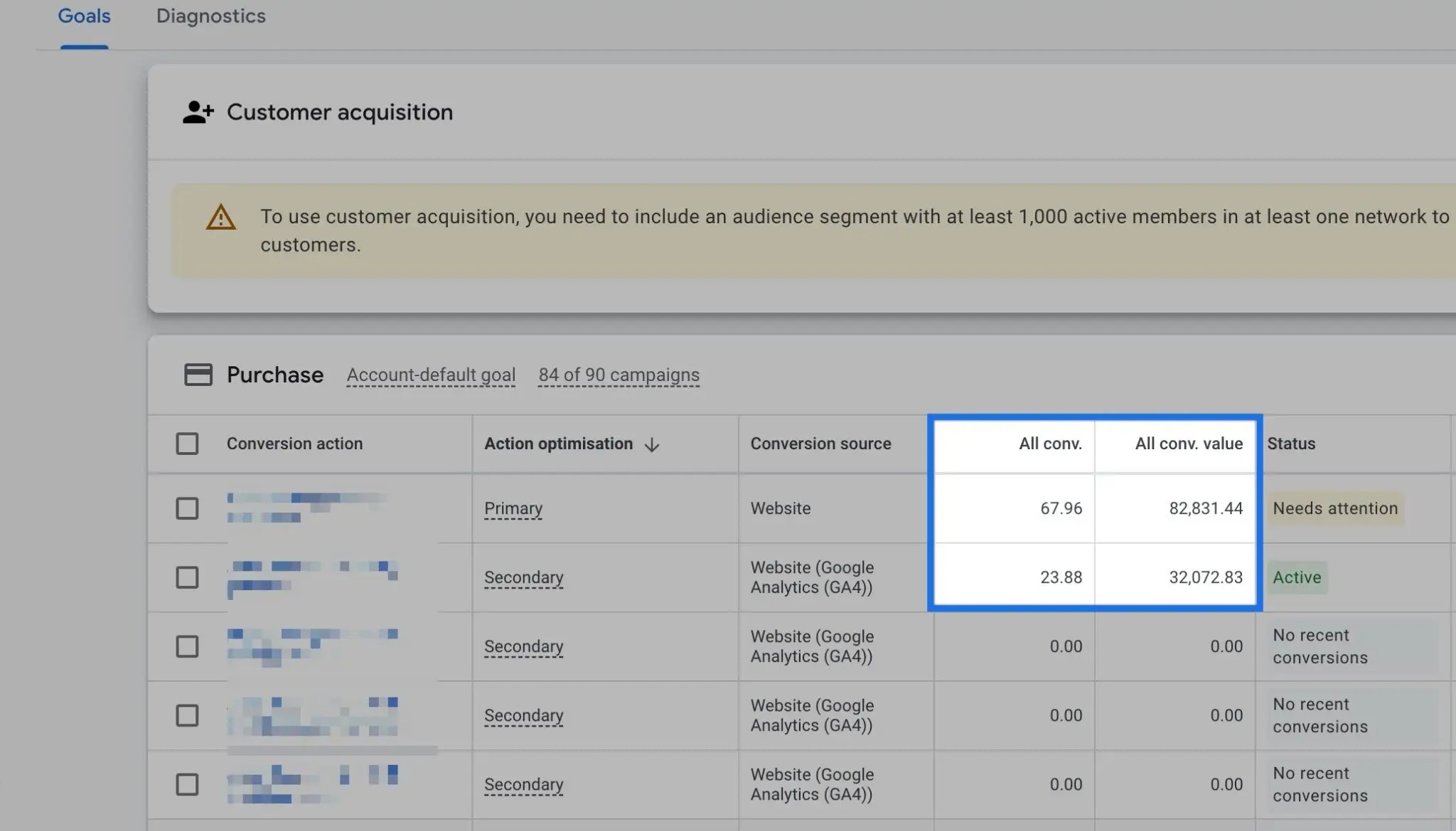
The revenue discrepancy between Shopify and advertising platforms occurs because:
- Shopify counts revenue at the moment of checkout initiation, while ad platforms wait for successful payment processing
- Refunds and cancellations often don’t sync back to your ad platforms, inflating your apparent ROAS
- Currency conversion issues create differences when running multi-currency stores
Struggling with Google Ads for your Shopify store? Our mini-guide reveals solutions to the most common problems merchants face.
Fix your ads issues now and start seeing better results.
The Hidden Cost of Lost Attribution
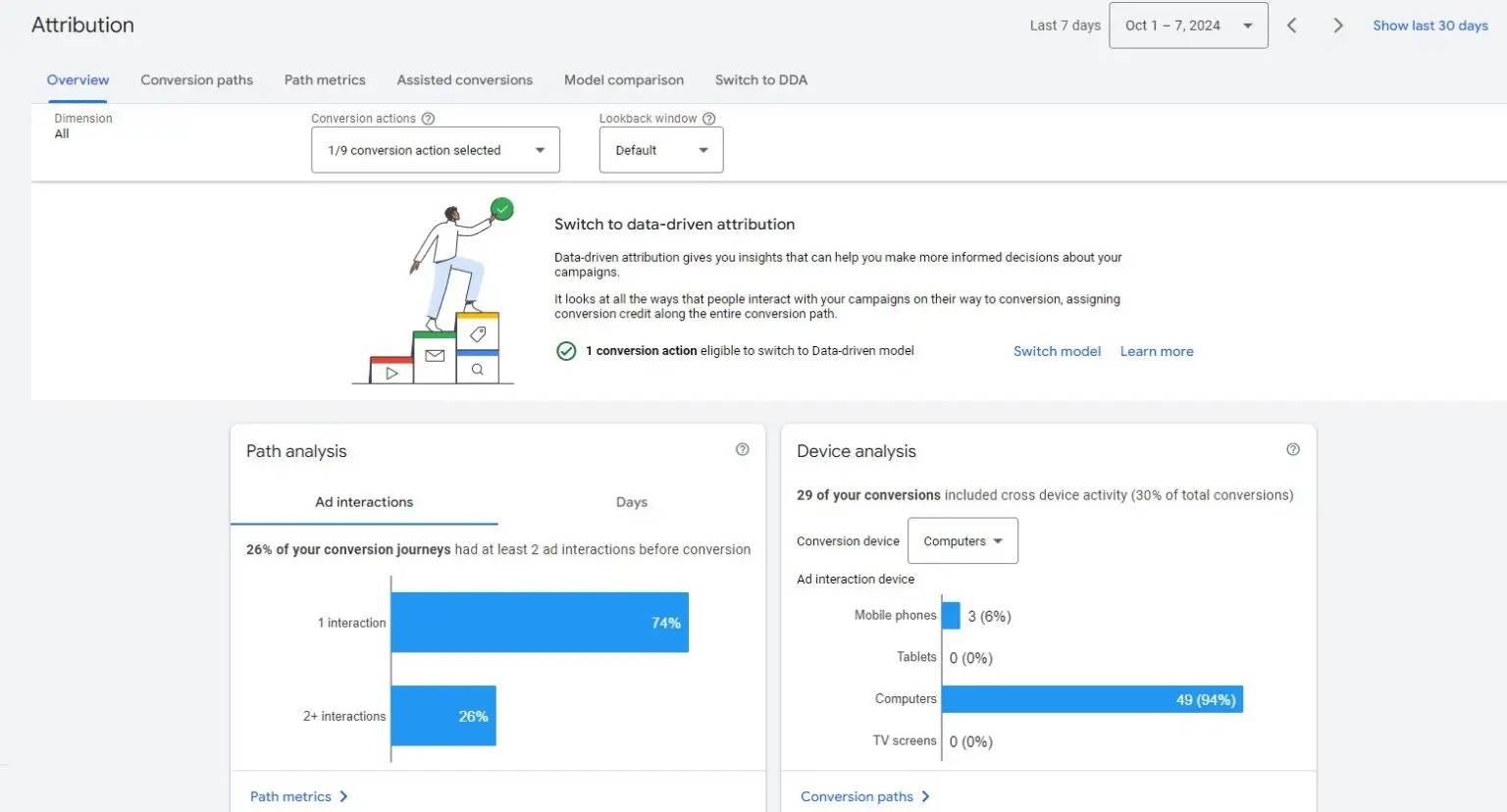
Your ad platforms are likely missing crucial conversions when:
- Customers begin shopping on mobile but complete purchase on desktop
- Users clear their cookies between viewing an ad and making a purchase
- Safari’s ITP (Intelligent Tracking Prevention) blocks tracking after 24 hours
- Ad blockers prevent conversion pixels from firing during checkout
The Real Impact on Your Business
Let’s put this into perspective: If your tracking setup misses just 20% of conversions (a conservative estimate for many stores), you’re making optimization decisions based on incomplete data. This means:
- High-performing campaigns get paused because they appear unprofitable
- Ad spend gets wasted on campaigns that seem successful but aren’t
- Remarketing audiences miss valuable segments of past purchasers
- ROAS calculations become fundamentally flawed
How Analyzify Solves This
→ This is where Analyzify’s enhanced Google Ads integration becomes crucial. Our solution provides deeper integration between Shopify and Google Ads, feeding comprehensive order data, customer parameters, and lifetime value directly to your ad campaigns.
Through our server-side Google Ads API implementation, we ensure your conversion tracking captures all available data points, while our expert-level audit system continuously monitors the health of your conversion tracking by cross-comparing Shopify orders with Google Ads data.
Essential Metrics for Shopify Ad Performance
Standard Google Ads conversion tracking barely scratches the surface of what’s possible with proper Shopify integration. While basic setups might track purchase values, they miss critical data points that could transform your campaign performance.
Beyond Basic Purchase Value Tracking
Your Google Ads campaigns deserve richer data signals such as:
- Customer lifetime value parameters that help identify your most valuable audience segments
- First-time vs returning customer indicators for better audience targeting
- Product category affinities to enhance your remarketing campaigns
- Cross-device purchase patterns that influence attribution modeling
Enhanced Conversions
Enhanced conversions fundamentally improve how your Google Ads campaigns perform by:
- Matching offline conversions with online ad interactions, even when cookies are cleared
- Providing accurate customer journey data across different devices and browsers
- Maintaining tracking accuracy despite iOS privacy changes and ad blockers
- Feeding your campaigns with precise transaction values and order details
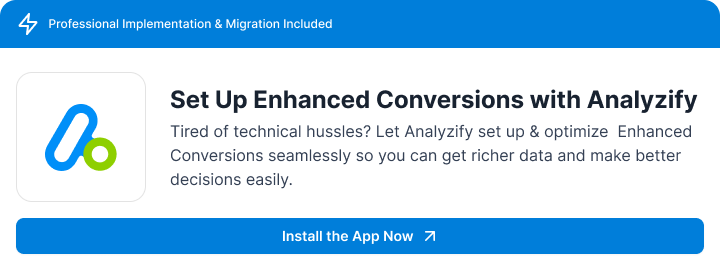
Dynamic Remarketing Requirements
Effective dynamic remarketing demands more than just basic product feeds:
- Real-time product view and cart abandonment data
- Accurate stock levels to prevent advertising out-of-stock items
- Price change tracking for dynamic pricing strategies
- Custom parameters for advanced audience segmentation
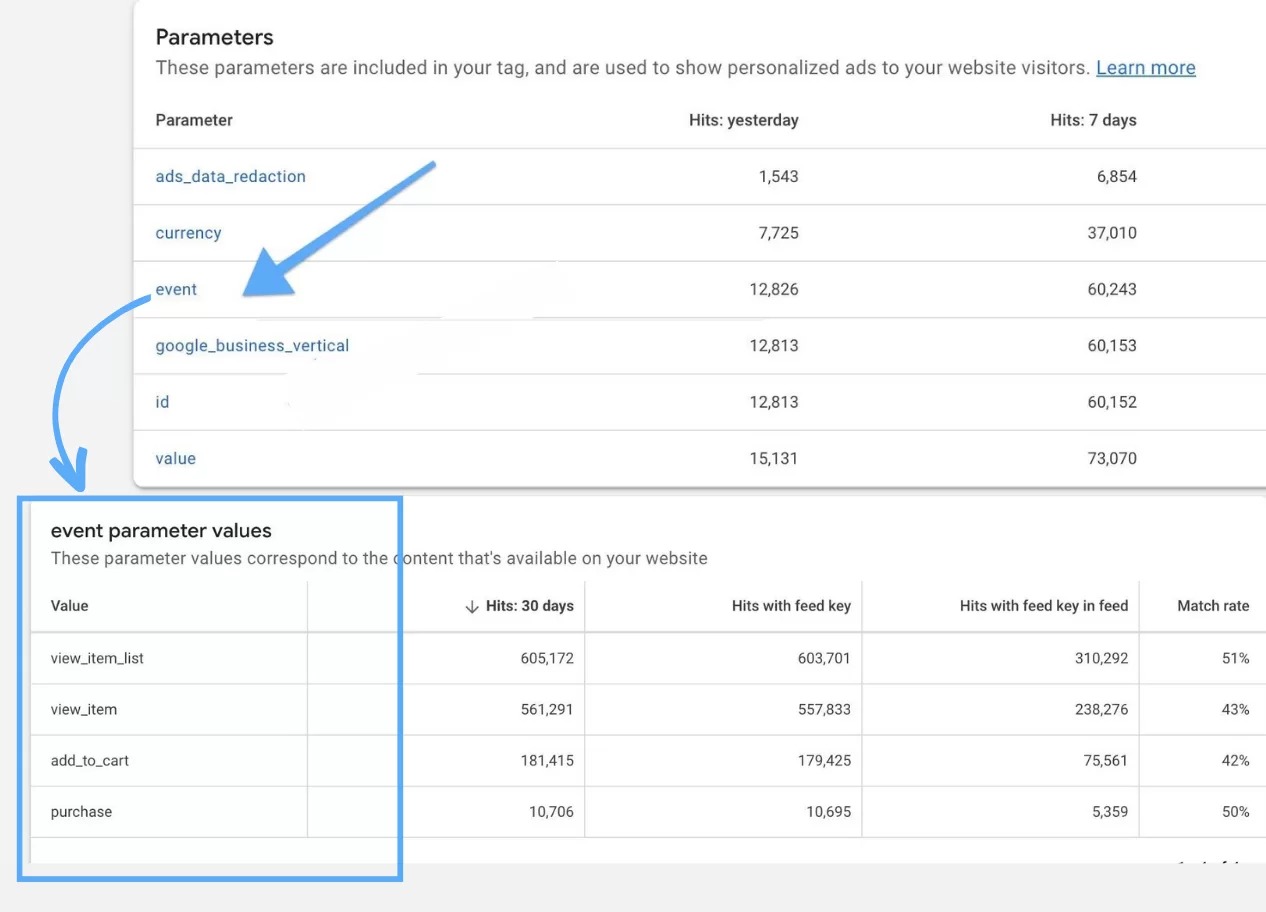
How Analyzify Solves This
→ Analyzify directly addresses these needs through its one-click Google Ads integration. Our server-side API implementation pushes all order-level and customer-level data to Google Ads, enriching your campaigns with comprehensive insights.
Plus, our in-depth dynamic remarketing setup ensures all events and precise product data flow correctly to your campaigns, making your remarketing efforts more targeted and effective.
Google Ads Tracking Problems: Common Shopify Store Mistakes
Many merchants discover tracking issues only after wasting thousands on underperforming campaigns. Here are the most expensive setup mistakes we regularly encounter:
Broken Checkout Tracking
The most critical conversions often fail to register because:
- Default tracking pixels break during the checkout process
- Order confirmation pages don’t load properly, causing missed purchase events
- Multiple tracking codes conflict with each other, creating duplicate conversions
- Shopping apps interfere with standard tracking implementations
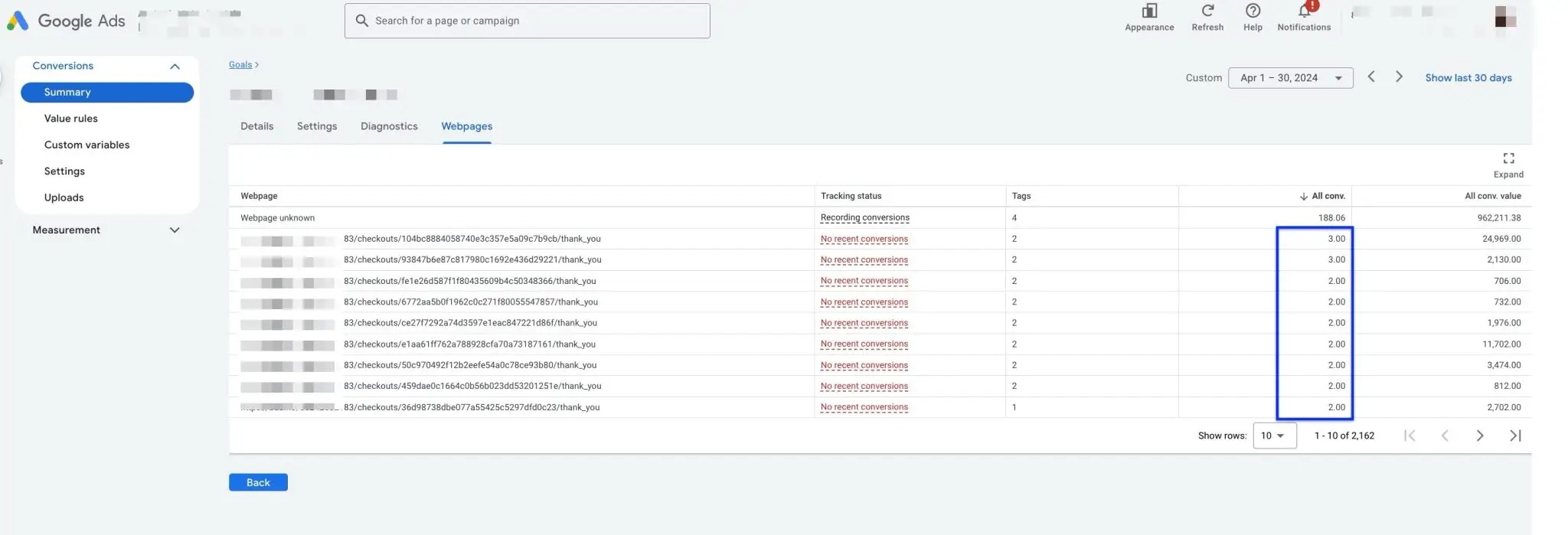
Compliance-Related Data Gaps
GDPR compliance shouldn’t mean sacrificing tracking accuracy, yet many setups fail because:
- Consent management solutions block essential tracking scripts
- Google Consent Mode isn’t properly implemented
- Privacy-focused browsers block third-party cookies
- Tracking continues after consent is withdrawn, risking compliance issues
![]()
Incomplete Product Data Flow
Product-level tracking often falls short when:
- Product IDs don’t match between Shopify and Google Merchant Center
- Variable product prices aren’t properly tracked
- Product variants cause tracking inconsistencies
- Custom parameters for specific product categories are missing
Check & fix your Shopify tracking problems with our troubleshooting guide. Includes a quick store health checklist.
How Analyzify Solves This
→ Analyzify solves these issues through expert-led implementation and validation. Our one-click setup handles enhanced conversions, dynamic remarketing, and proper GDPR compliance through Consent Mode v2.
We’re compatible with major GDPR solutions like OneTrust and Cookiebot, ensuring your tracking works reliably while respecting visitor consent. Most importantly, our system continuously validates your tracking setup, ensuring accurate data flows from Shopify to Google Ads.
Advanced Solutions for Accurate Ecommerce Ad Tracking
Let’s move beyond basic pixel implementation and explore what truly reliable ad tracking looks like for Shopify stores. Here’s what makes the difference between questionable and dependable tracking data:
Server-Side Implementation
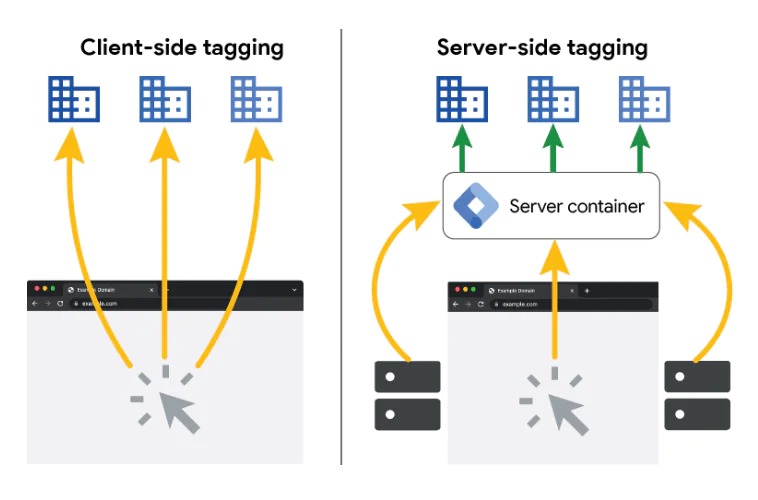
Server-side tracking has become essential because:
- Ad blockers increasingly target client-side tracking scripts
- Browser privacy updates regularly break traditional pixel tracking
- Client-side implementations often timeout during crucial moments
- Multiple third-party scripts create race conditions and tracking failures
The Data That Actually Improves Campaign Performance
Your Google Ads campaigns need these specific data points to optimize effectively:
- Purchase frequency patterns to identify high-value customer segments
- Product category preferences for smarter remarketing audiences
- Average order value trends across different customer types
- Cart abandonment patterns by product and customer segment
Conversion Health Monitoring
Tracking accuracy requires consistent validation:
- Cross-comparison between Shopify orders and Google Ads conversions
- Verification of customer parameter transmission
- Review of conversion value accuracy
- Assessment of tracking consistency across devices
How Analyzify Solves This
→ Analyzify uses Google Ads API for server-side implementation, ensuring reliable data transmission regardless of browser restrictions or ad blockers. Our enhanced conversion tracking pushes comprehensive order and customer data to Google Ads, while our expert-level audit system helps monitor conversion accuracy through cross-comparison of Shopify orders with Google Ads data.
This means your campaigns receive all available data points for optimization, from customer parameters to lifetime value metrics, through a single, robust integration.
See how Analyzify’s server-side tracking works for your Shopify store.
Conclusion: Ecommerce Ad Tracking Guide
Proper Google Ads tracking isn’t just a technical requirement—it directly impacts your advertising ROI. Missing conversions, incomplete customer data, and broken tracking setups are actively costing Shopify stores money through misallocated ad spend.
Key Steps to Improve Your Tracking Today:
- Audit your current Google Ads conversion tracking setup
- Verify that enhanced conversions are properly configured
- Ensure your dynamic remarketing feeds include all necessary parameters
- Confirm your tracking is GDPR-compliant if you serve European customers
What Success Looks Like
With proper tracking implementation, you should see:
- Consistent conversion data between Shopify and Google Ads
- Complete customer parameters in your ad platform
- Accurate purchase values and product data
- Reliable tracking across all devices and browsers
→ Ready to fix your Google Ads tracking? Analyzify offers a comprehensive solution with one-click setup for both enhanced conversions and dynamic remarketing.
Our expert-led implementation ensures your Shopify store captures every conversion accurately while maintaining GDPR compliance.
Start maximizing your ad performance with reliable tracking data – get started with Analyzify today.































